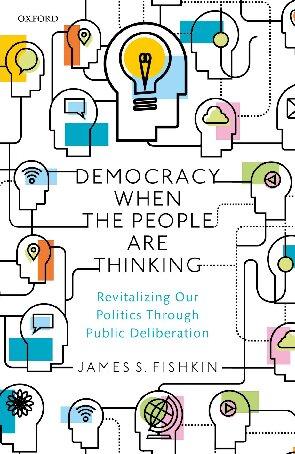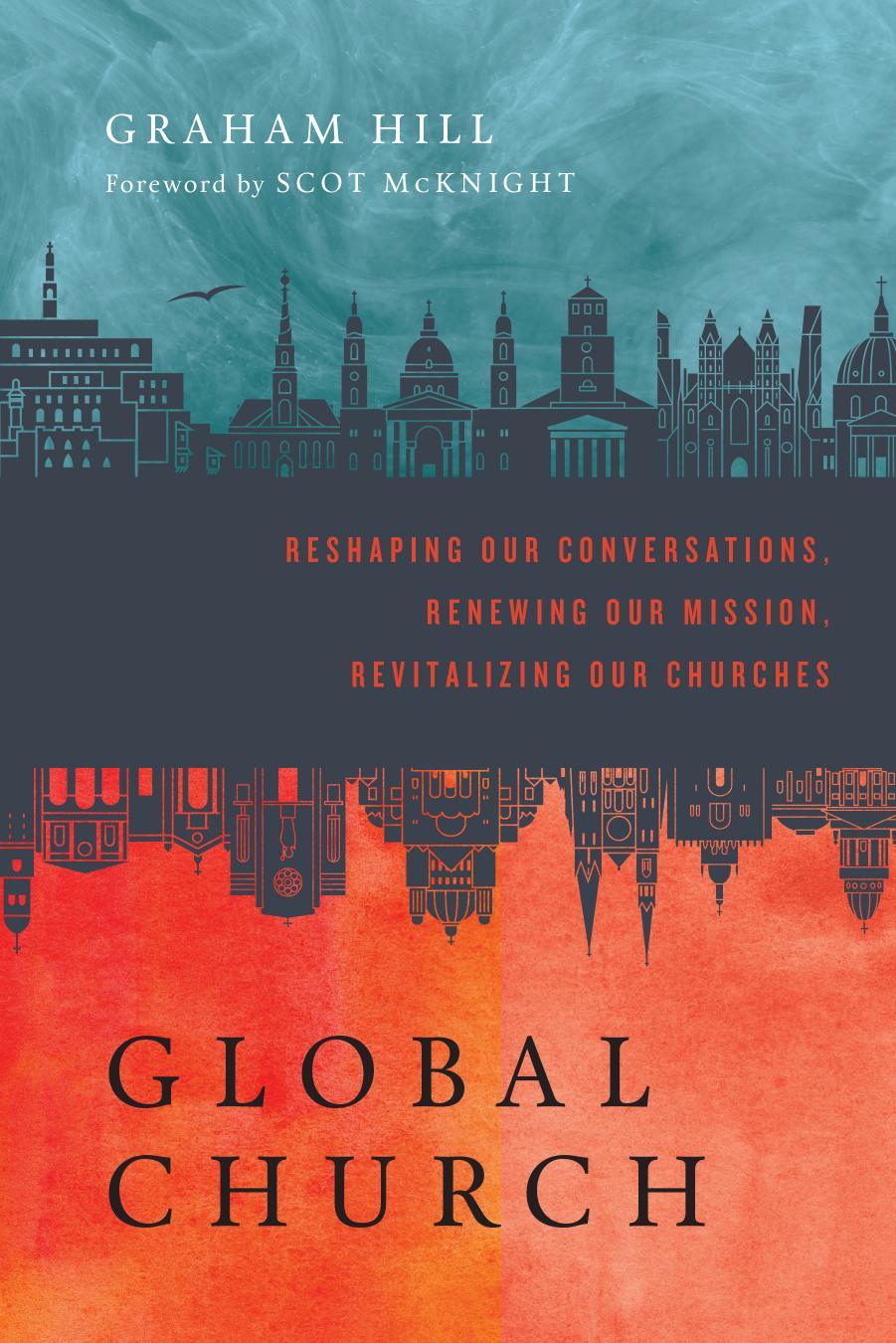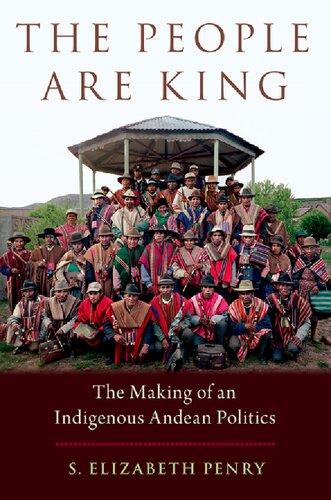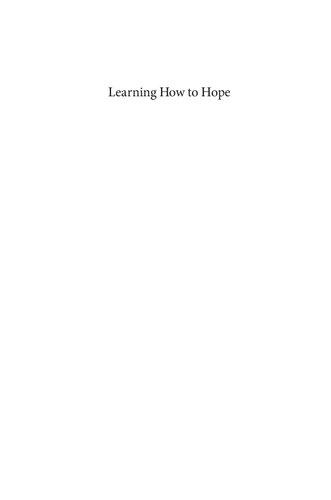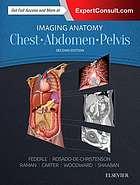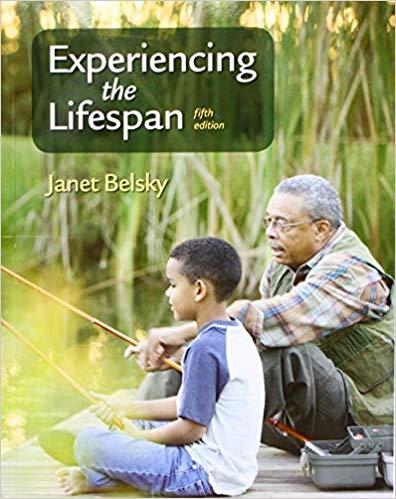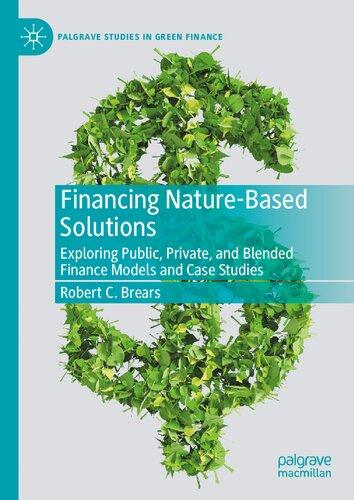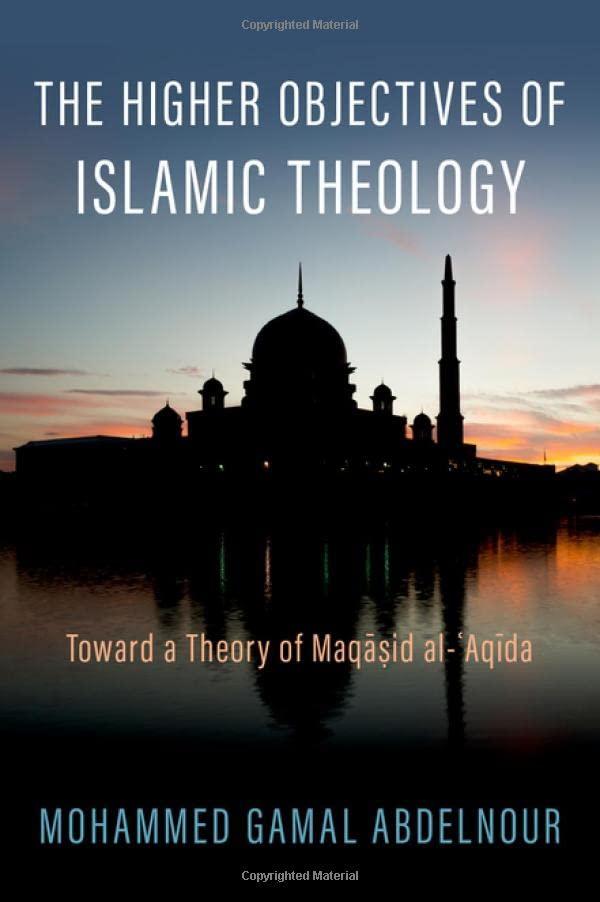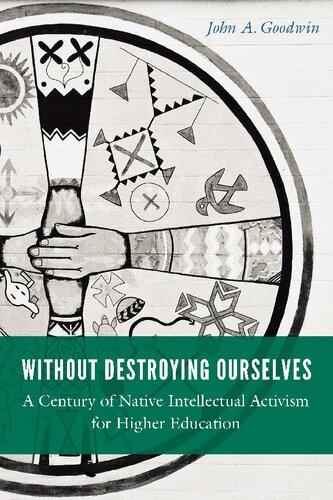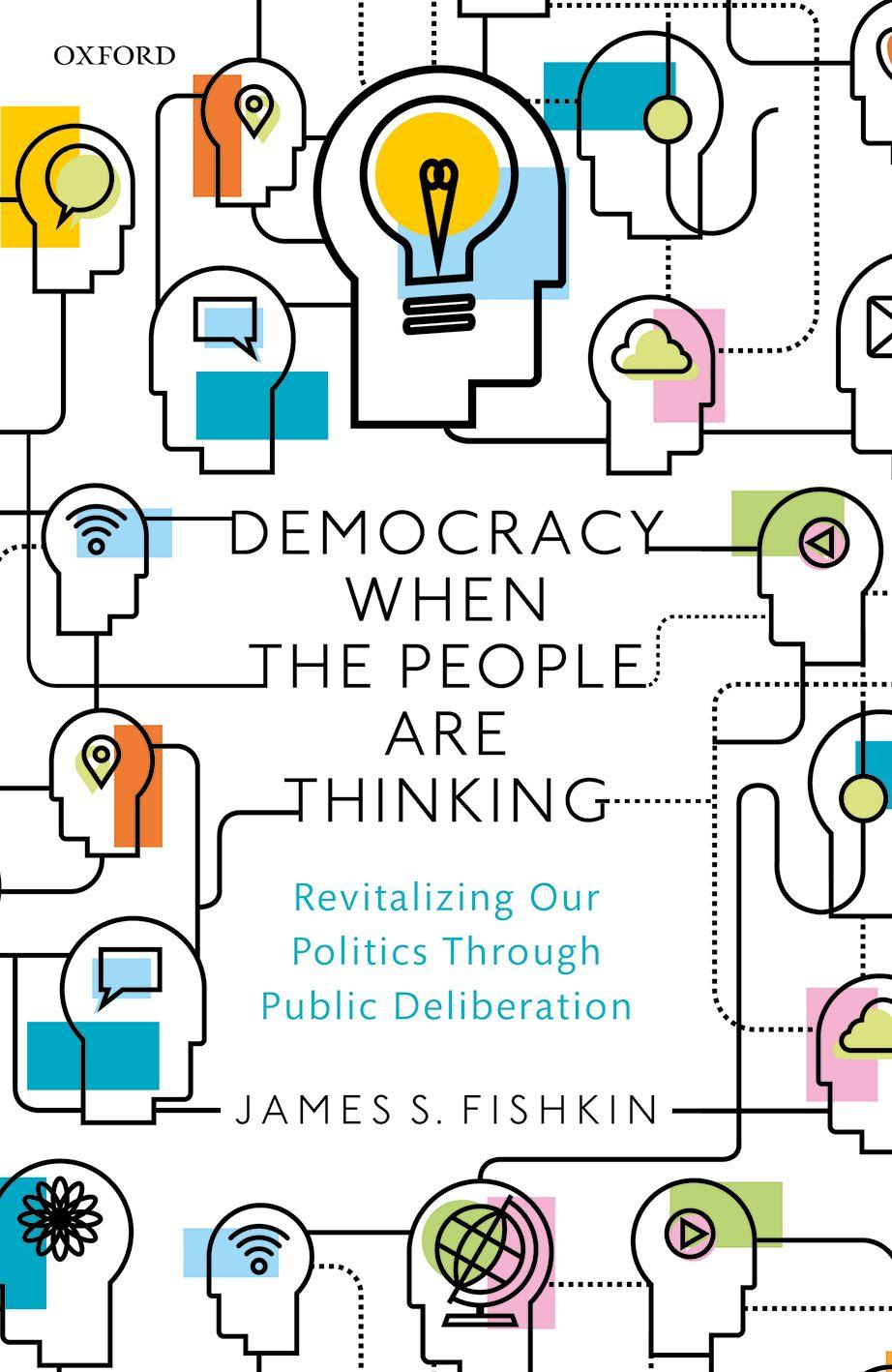Acknowledgments
Deliberativedemocracy,intheoryandpractice,hasbeenmyprincipaloccupationsinceIhadtheideaforDeliberativePollingin1988.Themany examplesinthisbookimplicitlydescribeajourneyfromnormativetheory toempiricalwork andbackagaintonormativetheory.Ihavemanydebtsto acknowledge.Teachers thelateRobertDahl,thelateBernardWilliams, CharlesE.Lindblom,DouglasRae.Collaborators RobertLuskin,Bruce Ackerman,AliceSiu,thelatePeterLaslett,andDeliberativePollingcollaborators andadvisorsinmanycountries.TheseincludeYasunoriSone,TatsuroSakano, KerryHayes,ShantoIyengar,BaogangHe,M.P.GombojavZandanshatar, MayorErdeniinBat-Üül,MarkKoenig,AmarzayaNaran,AngusCheong,Pam Ryan,KasperMollerHansen,JohnPanaretos,PierangeloIsernia,LennyMendonca,DennisThomas,andthelateWillGuildandallmycollaboratorsinthe ResilienceAfricanNetwork(someofwhomareincludedinSection4,PartIII,in thisvolume).Otherscholarswhohavebeenparticularlyhelpfulatvarious pointsincludeSimoneChambers,ClausOffe,BernardManin,HeleneLandemore,IanO’Fynn,NanandBobKeohane,SandyLevinson,LarryBartels, HenryBrady,CristinaLafont,GauravSood,RobertGoodin,MogensHerman Hansen,KimmoGrönlund,AndréBächtiger,AlanRyan,andLynnSanders.
NormanBradburnandthelatePhilipConversewerekeytolaunchingthese ideasintheUnitedStates,DavidLloyd,RogerJowell,andAndreasWhittam SmithwerekeyinBritain.DanWernerfromMacNeil/LehrerProductions, nowNewsHourProductions,hasbeencentraltobringingtheprocessto wideraudiences.HehasbeenakeypartnerasSeniorAdvisortotheCenter forDeliberativeDemocracysinceitsinception.ThelateCharlesE.Walkerwas aninvaluableally.JaneMansbridgehasbeenasourceofcontinuingwisdom. Co-teachersatStanfordsuchasJackRakove,LarryDiamond,andJoshOber havetaughtmemanythingsthatenrichthisbook.Inourjointlytaught classesIthinkIwasoneofthemostalertstudents.KathleenGiles,Manager oftheCenterforDeliberativeDemocracy,hasbeenasuperbhelp.Thereare manyotherstoacknowledgeonsuchalongjourneybuttheyaretoonumeroustoname.
Myfamily ShelleyFisherFishkin,JosephR.Fishkin,andBobbyFishkin, CEOofReframeIt,mybrotherDavidFishkin,aswellasmymother-in-law,
Acknowledgments
CarolPlaineFisher,andmylatefather-in-lawMiltonFisher,havebeena constantinspiration.Myparents,thelateJosephandFannieFishkin,started meonthisjourneyanddeservemorethanksthanIcanexpress.
Anymistakesaremine.Thisbookillustratesthecomplexitiesposedbya verysimpleidea,ifonlywetrytoputitintopractice.Myhopeisthatthebook willappealtopoliticaltheoristswhowanttothinkaboutrealcases,empirical scholarswhowanttothinkabouthypotheticalcases,andanyoneinthe publicwhowantstothinkaboutdemocracy itsprospectsandlimitations, nowandinthefuture.
TableofContents
ListofTables ix
ListofBoxes xi
PartI:Introduction 1
1.PartyCompetitionandItsLimits3
2.DeliberationandReform6
PartII:CanthePeopleRule? 13
1.FourCriteriaforPopularControl13
2.FourFormsofDemocracy23
3.PopularControlinCompetitiveDemocracies27
4.IsThereDemocracyfor “Realists”?31
5.Manipulation35
6.EliteDeliberationandPopularControl:Madison’sFilter39
7.ParticipatoryDemocracyandDemocraticControl:FromTown MeetingstoReferenda45
8.ReflectionsontheAthenianCase51
PartIII:MakingDeliberationPractical 69
1.DesigningDeliberativeDemocracy69
2.DeliberativeAgenda-Setting:CaliforniainOneRoom79
JamesS.Fishkin,ThadKousser,RobertC.Luskin,andAliceSiu
3.Mongolia:DeliberativeParticipatoryBudgeting91
4.ApplyingDeliberativeDemocracyinAfrica:Uganda’sFirst DeliberativePolls100
JamesS.Fishkin,RoyWilliamMayega,LynnAtuyambe,Nathan Tumuhamye,JuliusSsentongo,AliceSiu,andWilliamBazeyo
5.DeliberatingEuropean-Wide?111
JamesS.Fishkin,RobertC.Luskin,andAliceSiu
PartIV:ReimaginingDemocraticPossibilities 137
1.DesignsforDeliberation:WhereandHow?137
2.ItWorksinPractice,ButDoesItWorkinTheory?140
3.FromThoughtExperimentstoRealExperiments:Reflectionson RawlsandHabermas148
4.DeliberativeDemocracyandCandidateSelection157
5.Texas:ConnectingPublicDeliberationtoPolicyElites160
6.ConnectingDeliberativeDesignstoParticipatoryDemocracy163
7.DeliberatingBeforeBallotPropositions:Reflectingonthe “AustralianRepublic” 166
8.Japan:DeliberationforHardChoices172
9.DeliberationDay175
10.ConnectingDeliberativeDemocracytoConstitutionalChange180
11.SpeculatingonNewInstitutions183
12.MongoliaDeliberatesonConstitutionalChange189
13. “DeliberativeAuthoritarianism”?195
14. “DeliberativeSystems” andPopularControl199
15.TowardCollectiveSelf-Rule208
Appendix 221 Index 251
ListofTables
2.2.1FormsofDemocracy24
3.2.1IndirectInitiativeProposals85
4.7.1DeliberativeResultsonReferendumQuestion169
4.7.2FirstChoiceModel170
A3.1What’sNextCalifornia221
A3.2What’sNextCaliforniaAttitudeChangeforPolicyProposals222
A3.3Regression:LengtheningAssemblyTerms224
A3.4Regression:Part-TimeLegislature224
A3.5InequalityAnalysesforWhat’sNextCalifornia225
A3.6PolarizationAnalysesforWhat’sNextCalifornia226
A3.7ElementsofProposition31227
A3.8Ulaanbaatar:ProposedProjects,RankedHighesttoLowest Post-Deliberation227
A3.9InequalityAnalysesforUlaanbaatar228
A3.10PolarizationAnalysesforMongolia228
A3.11aBududa(Uganda):SignificantPolicyChanges229
A3.11bButaleja(Uganda):SignificantPolicyChangesforParticipants229
A3.12Bududa:TopTenPrioritiesAfterDeliberation230
A3.13Butaleja:TopTenPrioritiesAfterDeliberation230
A3.14Bududa:IllustrativeExcerptsforTopThreePriorities231
A3.15Butaleja:IllustrativeExcerptsforTopThreePriorities232
A3.16SmallGroupPolarization:Bududa233
A3.17SmallGroupPolarization:Butaleja234
A3.18BududaInequalityAnalysis235
A3.19ButalejaInequalityAnalysis237
A3.20EuropeanUnionImmigrationIndex239
A3.21EuropeanUnionClimateChangeIndex239
A3.22EuropeanUnion:AttitudinalRepresentativenessforIndices240
A3.23EuropeanUnion:KnowledgeGain240
A3.24EuropeanUnion:InequalityandSmallGroups241
A3.25EuropeanUnion:IndicesBeforeandAfterDeliberation241
A3.26EuropeanUnion:TreatmentVersusControlGroupbyIndices atT1andT4241
A3.27EuropeanUnion:ExplainingtheGreenVote,T1andT3241
A3.28EuropeanUnion:ExplainingtheGreenVote,T1andT4242
A4.1Macau:InequalityAnalyses242
A4.2Macau:PolarizationAnalyses243
PartI
Introduction
Imagineanationalcompetitionbetweentwoormore “teams” testingtheir skillandstrategytomobilizefanswhovotefortheirfavoritesaftereachof manymediaevents.Perhapsthereareathleticcontestsinmanysports.Agiant Olympicsinmanystatesorpartsofthecountry.Sportsreportersandmedia commentatorsoffernearlyendlessspeculationandgossipabouthowthe teamsaredoingandwhomightgarnersupportofthegreatestnumberof fans.Perhapstheteamsalsosendcontestantstobeautycontests.Orspeaking conteststradinginsults.Talentshows.Magic.Alloftheseexhibitionstakeplace overmanymonthsinordertoselectthewinningteamsforvariousprizesbased onfantabulationsinvariouscategoriesandplaces.Theprizesarepolitical officesateverylevelofgovernment.Theteamscallthemselvespoliticalparties.
Reformerssaythatthiskindofcompetitionhasverylittletodowiththe kindof “democracy” weshouldaspiretoachieve.Yes,thereare “votes” ofthe fansbutwhataretheyabout?Asamodestreform,theteamsareencouragedto offer “platforms,” mostlyexpressedinplatitudesaboutwhattheywoulddoif theygetsomeoftheprizes.Almostnoonereadstheplatformsbutreformers congratulatethemselvesonimprovingthesystem.
Thepoliticalcompetitioninthisimaginarysocietyleavesoutafactorso obviousthatithardlyrequiresexplicitstatement anymeaningfulopportunityforpublicwillformation.Thepeoplelackanyrealopportunitytothinkin depthaboutwhattheyreallywantdone.Insteadtheyhavecompetitive politicalsportsanddistractions.Itisakindoflimiteddemocracywithbarely thepretenseofengagingthewillofthepeople.1
Ouractualdemocraciesaredifferentinthattheydoaspiretoengagethepublic will.Theyspeakaboutitinahigh-mindedwayandtheymakemodestefforts. Buthowdifferentaretheyreally?Andwhatcouldactuallybedonetomove themmoreeffectivelyinthedirectiondesiredbyourimaginaryreformers?
Deliberativedemocracyisapracticalanswertoaphilosophicalquestion: Whatwouldthepeoplethinkshouldbedoneiftheycouldconsiderkeyissues undergoodconditionsforthinkingaboutthem?Whyisthataphilosophical
question?Howisitapracticalanswer?Whatmightwemeanbygoodconditions? Whatdoesthisapproachaddtodemocracyasweknowitinrealpolitical systemsaroundtheworld?
Thekeypremiseofthisbookisthatdemocracy,byitsverymeaning,should haveadiscernibleconnectiontothewillofthepeople.Thekeyquestionis whatinstitutionscanbestmakethatconnection.Theformofdemocracythat isnowdominantthroughouttheworldservesmanycentralvalues freedom ofexpressionandassociation,ruleoflaw,rotationinoffice,accountability. Inservingthosevaluesitcanberegardedasamajorhumanachievementin thelonghistoryofdemocracyspanning2,400years.Butwhereistheentry pointforanymeaningfulversionofthepublicwill?Asdemocratictheorists andpractitionershaveaskedinsomeprecedinggenerations,arethereavenues ofreformthroughwhichwecanbetterliveuptodemocraticideals?Asthelate theoristofdemocracyRobertDahlasked,canweenvisioninstitutionsforan “advanceddemocraticcountry?”2
Thereisatwofoldproblem:theconditionsunderwhichthe “willofthe people” developsandthemechanismsbywhichthatwillisexpressed.Whyis the firstaproblem?Weliveinaworldofrelentlessadvocacy,massive financing ofthepersuasionindustry,theviralspreadoffakenews,socialmediadiscussions amongthelike-minded,andthepressuresofpoliticalcompetitionbuiltintoour practicesofdemocracy.Insteadoftakingpreferencesasgiven,inwhateverway theyhappentoresult,aspirationsfordeliberativedemocracylookathowand whetherourviewsofwhatshouldbedonecanbedevelopedunderconditions whereevidence-basedreasonsandargumentscanbemoreconsequential. Whereargumentsofferedareansweredinturnandwhereeffortstomisleador manipulatethepublichavelesseffect.Tosome,suchanideamightseemwildly impractical.Butitisevenharderwhenconnectedtothesecondproblem:who representsorspeaksfor “thewillofthepeople.” Dowetrustthepoliticalelitesto speakforus?Afterall,theyare “representatives” orotherdulyauthorizedofficials.Ordowetrustthepeoplethemselves?Butifsohow?Aretheremechanisms throughwhichthepeoplecanthoughtfullyspeakforthemselves?Orarewejust leftwithaconfusingwelterofself-selectedvoices,howevermobilizedormisled?
Oneofthemostthoughtfulcriticsofdeliberativedemocracy,Michael Walzer,arguesthatcompetitionandmobilizationarethecentralfeaturesof democracy,notdeliberation:
thedemocraticwaytowinistoeducate,organize,mobilize ... morepeoplethan theothersidehas. ‘More’ iswhatmakesthevictorylegitimateandwhilelegitimacyisstrengthenedifgoodargumentscanbemadeaboutthesubstantiveissuesat stake,thevictoryisrarelywonbymakinggoodarguments.
Theveryideaofaformofpoliticsinwhichmakingthebetterargumentsis centraltotheoutcomeseemsutopian.Heasks: “whowoulddeliberate?On
whatissues?Withreferencetowhatfactsandtheories?Andwhywould dissatisfiedcitizensaccepttheoutcomesofthedeliberations?”3
Thesearepenetratingquestions.Theyformachallengingagenda.Thisbook isanefforttoanswerthem.
Ourconcernisnotwiththeorydisconnectedfrompractice.Rather,by experimentingwithhowtofacilitatethepublicwillandexperimentingwith venuesandinstitutionaldesignswhereitcanbebroughttolifeandmade consequential,wecanglimpsemoreambitiousdemocraticpossibilities.Deliberativedemocracyisnotjustamatterofarmchairtheorizingorthought experiments.Itcanbethesubjectofempiricalwork essentiallypilotsfora philosophicalidea.Furthermore,itcancontributetopracticalreformsand improvedgovernanceatmanylevelsthroughouttheworld.
Wewillfocusonwaystoconnectthewillofthepeoplewithwhatisactually tobedone.Wewilllookatvariousvenuesandpilots,drawnfromdifferent politicalcontextsandsystems.Initially,theideaisto findappropriateentry pointsforreform,carefullydefinedanddelimitedarenaswhereamoredeliberativedemocracycanbeappliedandthenevaluated.Later,wewilllook beyondmicroprojectsandenvisionlargerschemestoscaleupthevisionwe arediscussing.
Effortstonurturedeliberativedemocracy,inboththeoryandpractice,come atatimewhengovernancearoundtheworldisbesetbyarecurringdilemma listentothepeopleandgettheangryvoicesofpopulismorrelyonwidely distrustedelitesandgetpoliciesthatseemoutoftouchwiththepublic’s concerns.Populismortechnocracy?Isthereathirdway?Self-selecteddemocraticmechanismsareeasilycapturedbythosewhofeelmoststronglyorhave mosttogain.Theyrepresentonlyportionsofthepeople,oftenmobilizedto shoutbutnottolisten.Theyareeasilyvulnerabletopopulism.Ontheother hand,elitescannotformulatepolicydemocraticallywithoutpublicinput. Policy-makinghastobebasedonchoicesamongvalue-ladengoals.Whose values?Whosegoals?Technocratscannotsubstitutetheirownandserve democracy.Technocracydivorcedfromthepeopleiseasilyvulnerableto masscynicismanddistrust,andforgoodreason:itisnotdemocracy.
Variationsofdeliberativedemocracycan fillthegapwithavoiceofthe peoplethatisrepresentativeandthoughtful—“amildvoiceofreason” from thepeopleandnotjustfromtheirleaders.4 Itcanprovidethemissinglink betweenpublicjudgmentandpublicpolicy.
1.PartyCompetitionandItsLimits
Manyreaderssimplyequatedemocracywithcompetitiveelections.Theywill arguethatifthereisaproblem,itisnotwithourmodelofdemocracybuthow
wellweapplyit.Wefailtoliveuptoourowndemocraticvalues.Wehave manyplacesaroundtheUSandaroundtheworldwherethemodelofcompetitiveelectionsisonlyweaklyapplied,ifatall.Thereisvotesuppression, distortionsofcampaign finance,alargelyuninformedpublic,vastsumsof moneyspenttomisleadandmanipulatepublicopinion,effortstospreadfake newsonsocialmedia,andapublicthatisincreasinglylikelytotalkmostlyto thelike-minded,andconsultmostlynewssourcesitagreeswith.Inaddition, weoftenhavethetheoryofcompetitivedemocracyappliedingerrymandereddistrictsdesignedsothattherewillbelittlecompetition.Evenwhere thereiscompetitioninelections,thatcompetitioncanproducetheleast substantive,dirtiestcampaignsfocusedoncharacterandpersonality,often withgrossdistortionsofpersonalhistory.Ifnegativecampaigningwins elections,bysuppressingtheapprovalratingsandturnoutfortheother side,5 thenthosetendencieswillbeenhancedbygreatercompetition.6 Candidatesandpartieswanttowin.Ifvotersbecomeinformedaboutthe complexitiesofseriousissuesthatisonlyaby-product,andonethatisrarely achieved.Soincreasingcompetitionmaywellworsenourelections bymakingcampaignsdirtierandlesssubstantive,byfurtheramplifyingtheroleof money(includingdarkmoney),andbyputtingapremiumonthesuccessful manipulationofpublicopinion.
Ontheotherhand,partycompetition-baseddemocraciesalsohavemany admirableaspects.Thebestversionsprotectwell-establishedfreedoms freedomofthepress,freedomofassociation,protectionsforindividualrights, andtheruleoflaw.Theyprovidefororderlytransitionsofpowerbasedonthe competitivestruggleforthepeople’svote.Theyarenotjustdemocracies,but liberaldemocracies 7 Yetalltheinfirmitiesmentionedcanapplyinliberal democraciesdespitethesefreedomsandprotections.Theruleoflawandfree expressionandassociationdonotpreventgrossinequalitiesofcampaign finance.Indeed,intheUS,thecurrentinterpretationsoftheFirstAmendment freedomshavebecomeaweaponprotectinginequalityincampaigns.8 Money talks,evenifcorporate “persons” aredoingthetalking.Freedomofexpression canbeusedtodistortandmanipulatepublicopinionaseasilyasitcanbeused toinform.
Throughoutmostofthetwentiethcentury,therewererelativelyfewdemocracies.Then,beginningabout1974,the “thirdwave” spreaddemocratic governancearoundtheworldfromaround30percentoftheworld’sindependentstatestocloseto60percent.9 Thisexpansionbroughtpublicinput andaccountabilitytogovernanceinmostcountries.However,sinceabout 2007,therehasbeenahalttothisexpansionand,onsomeaccounts,a contraction,ora “democraticrecession.”10 Insomecountrieswherethere mayhavebeenvigorouselectoralcompetition,thereisnowone-sidedand perhapsonlysymboliccompetition.11 Manyregimesthatarefundamentally
authoritarianholdelectionsandadoptthetrappingsofdemocracy,but mostlyforappearances.SuchcountriesillustratewhatStevenLevitskyand LucanWaycall “competitiveauthoritarianism” wherethecompetitionisso lopsidedthattheelectionsareamereformalityorevenasham,whilethe governingelitesamassdecisivepower.12
Evenworsefordemocraticaspirations,therearecountrieswithlittledemocracybutrelativelygoodgovernance.Imagineagovernmentthatsimply usescost–benefitanalysis(andothertechnocraticmethods)tomakepolicy, insteadofusinganyformofdemocraticconsultation.Somehavearguedthat Singapore,withsomeofthebesttechnocratsintheworldbutlittlepopular controlovergovernance,isfulfillingthatmodel.13 Whyshouldwehave democracy,onemightargue,whenwecanhavegoodgovernance(orbetter governance)withoutit?Ourmostinfluentialdemocraticmodel,competitive elections,seemstohaveitsowncompetitionfromapparentlybenevolent nondemocracies.Democracyisundersiegeandneedstoexperimentandinnovate.Thisbookhopestocontributetothatdialogue.
JohnStuartMillponderedthechallengeofa “benevolentdespot” inhis ConsiderationsonRepresentativeGovernment.Settingasidethepracticalobjectionstosecuringsuchanenlightenedruler,hecountered: “supposethe difficultyvanished.Whatshouldwethenhave?Onemanofsuperhuman mentalactivitymanagingtheentireaffairsofamentallypassivepeople.”14 Whatkindsofcitizenswouldonehaveiftheytooknoresponsibilityandhad noinvolvementintheirgovernment?Ourproblemtodayisthatwithlow turnout,generallylowparticipation,andlowpublicengagement,ourdemocraciesarebecomingwhatBernardManinhascalled “audiencedemocracy.”15 Mostofthetime,citizenscurrentlyhavelittleparticipationexceptasspectators.Approvalratingsforalmostallkeydemocraticinstitutionsarein long-termdeclinesinvirtuallyalldemocraticcountries.SoMill ’sresponse distinguishingademocracywithinvolvedcitizensfromabenevolentdespotismislesspowerfultoday.Wealreadyhaveademocracywithmostly uninvolvedcitizensmostofthetime.
Onecouldarguethatweshouldvaluedemocracybecauseitis instrumentally necessaryforthelibertieswecherish(libertiesofthought,expression,and associationprotectedbytheruleoflaw).Onthisviewthedefenseofdemocracyrestsonanempiricalclaim.Weneeddemocracytoprotectourliberties. But,asIsaiahBerlinnoted,
Self-governmentmay,onthewhole,provideabetterguaranteeofthepreservation ofcivillibertiesthanotherregimes butthereisnonecessaryconnexion betweenindividuallibertyanddemocraticrule.Theanswertothequestion ‘Whogovernsme?’ islogicallydistinctfromthequestion ‘Howfardoesgovernmentinterferewithme?’16
Whilegrantingthelikelihoodthatdemocracywill,ingeneral,serveto protectourliberties,itisalsosometimesthecasethatelectoralcompetition canincentivizecrackdownsandrestrictionsonliberty,scapegoatingminorities(whetherpolitical,ethnic,orracial)forpoliticalgain.
Ourstrategyturnstheargumentaround.Libertiesofthoughtanddiscussionarenecessaryforany widespread applicationofwhatwewillcalldeliberativedemocracybythepeoplethemselves.17 Whilelibertymaynotimply democracy,democracy(atleastofacertainsort)requiresliberty.Theargumentthatdemocracyrequireslibertyofthoughtanddiscussion(aswellasthe protectionsaffordedbytheruleoflaw)isnotnew.Itiscoretothetheoryof theFirstAmendmentintheUSandwasfamouslyarticulatedbyAlexander Meiklejohn.18 But,aswewillsee,democracycomesindifferentforms,someof whichmakefewdemandsonthethinkingofindividualcitizens.Deliberative democracybythepeoplethemselves,however,makesmanysuchdemands.19
Anywidespreadrealizationofdeliberativedemocracywouldprovidethe strongestcaseforaversionofMeiklejohn’sargument.
Inbroadterms,governmentscanachievelegitimacythroughprocessand throughoutcomes.Faithinthedemocraticprocessisindecline.Ifother systemsdeliverthegoods,andprovideprosperityandotherresultspeople careabout,thenthedemocraticmethodfacesaseriouschallengeonthebasis oftheoutcomesitproduces.
Fordeliberativedemocrats,theresponsetodemocracy’slegitimacyproblems,whetherfromprocessorfromoutcomes,istoinvigoratethepublic capacityforthoughtfulself-rule.Thelawsandpolicieswhichthepeopleare seentoimposeonthemselves afterfullconsiderationandbasedongood information haveauniqueclaimtolegitimacy.Theprocesspermitsthe publictotakethoughtfulresponsibilityandtheoutcomesshouldbewhat thepeopledecidetheyreallywant.Thisistheideal.Buttherearemany questionsinanageofcynicismandmassdisaffectionabouthowthisideal canberealized.
2.DeliberationandReform
Effortsatdemocraticreformhavelongbeenentangledinanapparentlyforced choicebetweentwofundamentalvalues politicalequalityanddeliberation. Aroundtheworld,changesindemocraticinstitutions,bothformalandinformal,havebrought “powertothepeople” butunderconditionswherethe peoplehavelittlereasonoreffectiveincentivetothinkverymuchaboutthe powertheyaresupposedtoexercise.Avastsocialscienceliteraturedocuments thatthemasspublicinalmosteverypolitylacksinformationorevenpays muchattentiontopoliticalmatters.20 Andwhenitdoes,ittendstoengage
thesideoftheargumentit findsmostcongenial.Thelike-mindedshare information,ormisinformation,orevencongenialbutfakeinformation, andneverengagewiththethinkingofthosewithwhomtheydisagree.Such apubliciseasilysubjecttomanipulationbythemechanismsofone-sided persuasiondevelopedforadvertisingandforpropaganda.21 Inourlong journeyofbringingpowertothepeople throughmassprimaries,referenda, recallelections,directelectionofsenatorsintheUS,publicopinionpolls,and otherformsofpublicconsultation wehaveempoweredapublicthatgenerallylackstheinformationandattentionthatwouldberequiredforapplying thevalueofdeliberationinmakingthosechoices.Wereformpoliticsin thenameofdemocracy,butitisathindemocracythat,evenatitsbest,prizes politicalequalitywithoutdeliberation.22 Suchademocracyriskssubstituting thewhimsofthepeopleforthewillofthepeopleandthemethodsofMadison AvenueforthevaluesofJamesMadison.23
Canwedobetter?A fi rststepistoimplementthecombinationof politicalequalityanddeliberation.Po liticalequalitybecauseequalcountingisatthecoreofthedemocraticidea.Deliberationbecausethatiskey toademocracyofthoughtfulself-rul e.Theideaistoequallycounteveryone ’sviewsunderconditionswheretheycanreallythinkinordertogive expressiontoameaningfulpublicwill.Hence,wewilldrawonworkthat combinesrandomsamplingtohelpachievepoliticalequalitywithconditionsfacilitatingin-depth,thoughtfuldiscussion.Suchconsultationscan bedoneincontextsthatareconsequentialsothattheresultingopinions provideausefulinputtopolicy.Thisi samicrostrategy,butitembodies andhelpsdramatize apictureofdemocracywhenthepeoplearethinking. Further,itcanprovideinformedandrepresentativeinputtopolicy.Butsucha strategy,whilecriticallyimportant,isonlyapartialsolution.Ultimately,we needmorethandeliberative microcosms ofthepeople.Weneedadeliberative macrocosm adeliberativesociety.Howcanthisbedone?Candeliberation scale?Canmicrocosmicexperimentshelpilluminateavisionforlong-term reform?Thatisoursubjectinthelaterpartsofthebook.
Notethatifsuchasystemwerepossibleitwouldmeansolvingtheapparent trilemma adilemmawiththreecorners betweenpoliticalequality,deliberation,andparticipation.24 Canwegetallthree?Ithaslongseemedthatimplementinganytwowouldprecludethethird.First,wecanhavepoliticalequality anddeliberationwithastatisticallyrepresentativemicrocosmdeliberating. Butbecauseonlyamicrocosm,drawnbyrandomsampling,canparticipatein thedeliberations,wefailtoachievethethirdprinciple:massparticipation. Alternatively,wecangetmassparticipationanddeliberationbutonlywith thoseself-selectingforarealinterestinthesubject.Amobilizationofthe intenselyinterestedwillbeunrepresentativeoftherestofthepopulation. Suchmobilizationsareoftenkeytopopulismbuttheydonotspeakforall
thepeople.Aswewillsee,self-selectedintensegroupscanachievemassparticipationandevendeliberation,butsuchstrategieswillviolatepoliticalequality becausetheywillbeunrepresentative.25 Lastly,wecangetmassparticipation andpoliticalequalityinhighturnoutreferenda,forexample,butthesemass devicesusuallyfallshortondeliberation.26 Onceagainwefulfilltwoofthe principleswithoutthethird.Hencethechallengeofthetrilemma,akindof dilemmawiththreecorners.
Ifwesomehowhadinstitutionsthatreliablydelivered large-scale deliberativeparticipationwithequalrepresentation,thatwouldfulfillallthreeprinciplesandmakethethoughtfulviewsofthepeopleimmenselyconsequential. Itwouldbethepublic’sconsideredjudgments,expressingtheviewsofall.It wouldnotbeamicrocosmrepresentingwhatthepeople would think.Rather, itwouldgiveexpressiontowhatthey actuallydo think.Whywouldthismake suchadifference?
AfterhisfamousvisittoAmericainthe1880sJamesBrycewrotein The AmericanCommonwealth thattherewasoneforcethatwaspre-eminent:
Toweringoverpresidentsandstategovernors,overCongressandstatelegislatures, overconventionsandthevastmachineryofparty, publicopinion standsout,inthe UnitedStates,asthegreatsourceofpower,themasterofservantswhotremble beforeit.27
Brycewastalkingofpublicopinionasweusually findit,withallitschangeable indeterminacies.28 Evensuchaversion,heargued,wouldsoonspreaditsinfluencearoundtheworld,creatingwhathecalled “governmentbypublicopinion.”29 Howmuchmorepowerfulandconsistentcouldweexpecttheinfluence ofpublicopiniontobecomeifitwerebuiltonreallysolidfoundations ifit weretheproductoftheentiresocietythinkingabouttheissuesandcomingto aconsideredjudgment?
Whatisthemodeofinfluenceforthis “greatsourceofpower”?This “key ... thatwillunlockanydoor.”30 Thatdepends,ofcourse,onthedesignofinstitutionsandtheincentivesandmotivationsofthevariousactorswithinit.We returntosuchquestionsinPartIV.
Iofferthisstillabstractbutidealpictureofvirtuallyeveryonedeliberatingas partoftheanswertoDahl’schallenge:howtoenvisioninstitutionsfor “an advanceddemocraticcountry.” Wecanstipulatethatachievingallthree principles politicalequality,participation,anddeliberation wouldconstitutea fulldeliberativeprocess withinagivenpolicydomain.Evenmoreambitiously,ifthereisadeliberative agenda-setting processtodeterminewhatthe peoplearedeliberatingaboutwithinthatpolicydomain,thenwecansaythat itisa well-ordereddeliberativeprocess. 31 Further,ifsuchprocessesaresufficiently widespread,wecansayitisa well-ordereddeliberativesystem.
Issuchasystempossible?Forthemoment,wecanonlyglimpsesuch possibilitiesonthebasisofmicroexperiments.Wecanalsoposescalingasa challenge:howtotakedeliberationfromthemicrocosmtothemacroscale. Themicroversionprovidesausefulinputtopolicy whatthepeoplewould thinkundergoodconditionscanbeinvokedbypolicymakerstoimprove governanceandbringitclosertotherealconcernsthathaveweightwiththe peopleoncetheyconsidertheissueindepth.Themacroversionhasthegreat advantagethatitsupplantsthehypotheticalwiththepublic’sactualconsideredjudgments.Canwhatwelearnfromthemicroversionbebroughtto scale?Beforeconfrontingthatdifficultquestion,wewillarguethatthemicro versioniseminentlypracticalandcredibleinitsownright.Themacroversion, ifachievable,wouldbetransformative.Inaworldofcompetingvisionsfor democracy,itidentifiesacleardirectionfordemocraticrenewal.
ThisbookfocusesagreatdealonDeliberativePolls,whichareonlyone possibledesignforbringingrepresentativeandthoughtfuljudgments fromthepublictopolicymaking.Thereareothers.Itisonlyonepartofa world-widemovementtosupplemento urcurrentelectoraldemocracies withpublicinputfromdeliberati ngrandomsamples.Iamconvinced therewillbeevenbetterdesignsinthefuture.Iamalsoconvincedthat practitionersofthismovementcanalllearnfromeachother.Thisbookisa contributiontothatdialogue.
Notes
1.Somepublicchoicescholarshaveusedtheanalogyofsportingfansrootingfor theirteamstotrytorestorerationalitytothedecisiontovote adecisionnot motivatedbyitseffectsonateamvictorybuttheenjoymentoftakingpartasafan (eventhoughafanwillhavenoeffectontheoutcome).SeeG.Brennanand J.Buchanan, “VoterChoice:EvaluatingPoliticalAlternatives,” AmericanBehavioral Scientist,vol.28(1984),pp.185–201.Whilethisapproachmightshedlighton decisionstovote,itdoesnothelpwiththeissueofwhethervoterswillbecome informedorattempttothinkaboutthemeritsofthecompetingalternatives However,itmightencouragemoreunbalancedknowledgeacquisition(partisan selectivity)asvoters findcongenialinformationsupportingtheirteam.Itclearly doesnotsupportthedeliberativevoter.
2.RobertA.Dahl, DemocracyandItsCritics (NewHaven,CT:YaleUniversityPress, 1989).
3.MichaelWalzer, “DeliberationandWhatElse?” inStephenMacedo,ed., DeliberativePolitics:EssaysonDemocracyandDisagreement (Oxford:OxfordUniversityPress, 1999),pp.58–69.
4.SeeJosephM.Bessette, TheMildVoiceofReason:DeliberativeDemocracyandAmerican NationalGovernment (Chicago:UniversityofChicagoPress,1994)forareadingof Madison ’ sdesignforthenationalgovernmentintermsofdeliberative democracy.
5.ForexperimentalevidenceondemobilizationseeStephenAnsolabehere,Shanto Iyengar,AdamSimon,andNicholasValentino, “DoesAttackAdvertisingDemobilizetheElectorate?” AmericanPoliticalScienceReview,vol.88,no.4(December 1994),pp.829–38.Foracontraryview,mostlybasedonsurveyevidence,see R.Lau,LeeSigelman,andI.Rovner, “TheEffectsofNegativePoliticalCampaigns: AMeta-AnalyticReassessment,” JournalofPolitics,vol.69,no.4(November2007), pp.1176–209.
6.Evenwhentheturnoutincreases,onbalance,duetothecountervailingforceof competitivemobilizationefforts,thelackofsubstanceunderminesdeliberation.
7.Forargumentsinfavorof liberal democracyseeGiovanniSartori, TheTheoryof DemocracyRevisited,PartTwo (Chatham,NJ:ChathamHouse,1987),pp.386–93; andLarryDiamond, TheSpiritofDemocracy (NewYork:TimesBooks,2008),ch.1.
8.LawrenceLessig, Republic,Lost (NewYork:Hachette,2011).
9. “Whenthethirdwavebeganin1974,onlyabout30percentoftheworld’s independentstatesmetthecriteriaofelectoraldemocracy asysteminwhich citizens,throughuniversalsuffrage,canchooseandreplacetheirleadersinregular, free,fair,andmeaningfulelections.” LarryDiamond, “FacingUptotheDemocratic Recession,” JournalofDemocracy,vol.26,no.1(January2015),pp.141–55.
10.Diamond, “DemocraticRecession.”
11.Thedegreeofelectoralcompetitioninsomeoftherecentlydemocraticcountriesis contested.SeeStevenLevitskyandLucanWay, “TheMythofDemocraticRecession,” JournalofDemocracy,vol.26,no.1(January2015),pp.45–58.Theirargumentisthatmanyofthecountriesthoughttobeindemocraticdeclinenever
actuallyachievedfulldemocratictransitionbutarebestconsideredcompetitive authoritariancases.
12.StevenLevitskyandLucanWay, “TheRiseofCompetitiveAuthoritarianism,” JournalofDemocracy,vol.13,no.2(April2002),pp.51–65.
13.DaveBengardi, “Singapore’sChallengetoDemocracy,” BerkeleyPoliticalReview, October12,2015.Availableat:https://bpr.berkeley.edu/2015/10/12/singaporeschallenge-to-democracy/.ForaspiriteddefenseofChineseaspirationsformeritocraticgovernanceseeDanielA.Bell, TheChinaModel:PoliticalMeritocracyandthe LimitsofDemocracy (Princeton,NJ:PrincetonUniversityPress,2015).
14.JohnStuartMill, ConsiderationsonRepresentativeGovernment (repr.Amherst,NY: PrometheusBooks,1991; firstpublished1861),p.56.
15.BernardManin, ThePrinciplesofRepresentativeGovernment (Cambridge:Cambridge UniversityPress,1997)pp.218–35.Thereis,ontheotherhand,agreatdealofcivic voluntarismintheUS,muchofitoutsideofelectoralpolitics.Foralandmarkstudy seeSidneyVerba,KayLehmanSchlozman,andHenryBrady, VoiceandEquality:Civic VoluntarisminAmericanPolitics (Cambridge,MA:HarvardUniversityPress,1995).
16.IsaiahBerlin, “TwoConceptsofLiberty,” in FourEssaysonLiberty (Oxford:Oxford UniversityPress,1969),p.130.
17.Notethequalifier “widespread.” Onrestrictedissuesitispossibletoapplydeliberativedemocracybythepeoplethemselvesinauthoritarianregimes.Butthose applicationsarerestrictedtoagivenissuedomainandmightbestbeviewedasa contributiontolong-termreform.SeeJ.S.Fishkin,B.He,R.C.Luskin,andA.Siu, “DeliberativeDemocracyinanUnlikelyPlace:DeliberativePollinginChina,” BritishJournalofPoliticalScience,vol.40,no.2(2010),pp.435–48.
18.AlexanderMeiklejohn, FreeSpeechandItsRelationtoSelf-Government (NewYork: Harper&Brothers,1948).
19.Wewillsometimesrefertothissimplyasdeliberativedemocracyafterwehave distinguisheditfromdeliberationbyrepresentativesorwhatwewillcallelite deliberation.
20.ForanoverviewseeMichaelDelliCarpiniandScottKeeter, WhatAmericansKnow aboutPoliticsandWhyItMatters (NewHaven,CT,andLondon:YaleUniversity Press,1997).
21.Foracompellingpictureoftheexcessesthatarepossible,seeKathleenHall Jamieson, DirtyPolitics:Distraction,DeceptionandDemocracy (NewYork:Oxford UniversityPress,1993).
22. “Atitsbest” isanimportantqualifier,givenincentivesforvotesuppressionunderminingpoliticalequality.See,forexample,SpencerOverton, StealingDemocracy: TheNewPoliticsofVoterSuppression (NewYork:W.W.Norton,2006).
23.SeethediscussionofMadisonondeliberationinPartII,Section6.Onthereading herehewasanadvocateforwhatwewillcallelitedeliberation,butthisdeliberationwasmeanttospeakforthepeopleasa “filtration” ofthepublic’sviews.See PartII,Section6.
24.Fishkin, WhenthePeopleSpeak:DeliberativeDemocracyandPublicConsultation (Oxford: OxfordUniversityPress,2009),pp.32–64.Moreprecisedefinitionsoftheseprinciples appearinPartII,Section2.
25.Theywillbesubjectto “participatorydistortion,” atermItakefromVerba,Schlozman, andBrady, VoiceandEquality,p.15.
26.Isadeliberativereferendumpossible?SeeBruceAckerman’sproposalforinstilling anincreasedopportunityfordeliberation,atleastbytherelevantelites,intoa constitutionalreferendum:asecond-termpresidentgettingatwo-thirdsvoteof Congressandthenrequiringtwosuccessivereferendumvotesforpassagewitha two-yearwaitingperiod.Wewillreturntothisprojectofaddingdeliberationto thereferendum,strengtheningthemassparticipationsidewithDeliberationDay. SeeBruceAckerman, WethePeople,vol.2(Cambridge,MA:HarvardUniversity Press,1998),pp.410–11.Onecanonlyspeculatewhatcomparablerequirements inthecontextoftheUKpoliticalsystemwouldhavedonetoBrexit.Iftherewere anautomaticrequirementtorevisitintwoyearsbefore finalizing,itwouldlikely haveimprovedthedebateandtheacceptanceoftheoutcome,whateveritwould havebeen.
27.JamesBryce, TheAmericanCommonwealth,vol.2(repr.;Indianapolis:TheLiberty Fund,1995),p.923,emphasisadded.
28.Bryce’sobservationsremaincogenttoday.Seechapter76, “TheNatureofPublic Opinion,” in TheAmericanCommonwealth.They findamplemodernconfirmation inJohnR.Zaller’smagisterial TheNatureandOriginsofMassOpinion (Cambridge: CambridgeUniversityPress,1992).
29.Bryce, TheAmericanCommonwealth,p.925.
30.Bryce, TheAmericanCommonwealth,p.921.
31.Thecaseforincludinganagenda-settingstageinanidealcharacterizationofwhat hecallsa “fullproceduraldemocracy” ismadebyRobertDahlin “Procedural Democracy,” inPeterLaslettandJamesFishkin,eds., Philosophy,PoliticsandSociety: FifthSeries (Oxford:Blackwell,1979),pp.97–133,especiallypp.106–7.

